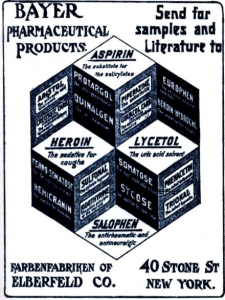Published: November 27, 2010
Is reasoning your way to a decision, or being convinced by others’ arguments, any better than trusting your gut? Oliver Burkman poses this question in todays Guardian
Faced with any choice, especially big ones, we use our rational minds to identify reasons for and against, test them if possible, then do what seems most sensible. We know we’re not infallible: numerous biases lead us astray, and we’re horribly prone to rationalisation – that is, misusing our reasoning faculties to corral our emotions into line. But these are exceptions, we tell ourselves. After all, we’re rational beings. That’s what separates us from horses, or sardines, or Jeremy Clarkson Curious? Continue reading
Source: The Guardian
Published: November 26, 2010

Photo Credit: iStockphoto
Cannabis Compounds Found to Trigger Unique Immune Cells Which Promote Cancer Growth
An international team of immunologists studying the effects of cannabis have discovered how smoking marijuana can trigger a suppression of the body’s immune functions. The research, published in the European Journal of Immunology, reveals why cannabis users are more susceptible to certain types of cancers and infections. [continue reading…]
Published: November 26, 2010
 A study that appears in the current issue of Psychotherapy and Psychosomatics addresses the association between use of aspirin and statins and the risk of major depression.
A study that appears in the current issue of Psychotherapy and Psychosomatics addresses the association between use of aspirin and statins and the risk of major depression.
Chronic disease states characterised by inflammation are often accompanied by depression. Furthermore, depression is commonly reported among patients following exposure to cytokine-based immunotherapy, systemic inflammation has been implicated in the development of depressive symptoms in the elderly, and recent twin studies support a genetic contribution to inflammation and the pathogenesis of depression. As statins and aspirin both have anti-inflammatory properties, the Authors of this study hypothesised that therapy with these agents would reduce the risk for depression. From an age-stratified sample of 1,494 women, randomly selected from the community and recruited for the Geelong Osteoporosis Study 1994-1997, 837 were aged at least 50 years, meeting the inclusion criterion for the study. 386 were assessed at the 10-year follow-up and agreed to a psychiatric interview. [continue reading…]
Published: November 25, 2010
Research from the Laboratory of Psychiatry and Experimental Alzheimers Research (http://www2.i-med.ac.at/psychlab/) at the Medical University Innsbruck (Austria) demonstrated that chronic high fat cholesterol diet in rats exhibited pathologies similar to Alzheimer’s disease. The results were published in Molecular Cellular Neuroscience (45(4):408-417, 2010) with lead author Dr. Christian Humpel. The study was co-authored by PhD students, Celine Ullrich and Michael Pirchl, from the same Laboratory.
Alzheimer’s disease is a severe neurodegenerative disorder of the brain that is characterized by loss of memory and cognitive decline. The majority of Alzheimer’s disease cases are sporadic (risk age >60 years), and only <2.5% have a genetic disposition. It is estimated that in 2050, approximately 80 million people will suffer from Alzheimer’s disease worldwide. The major pathological hallmarks of Alzheimer’s disease are extracellular aggregates (plaques) of the small peptide beta-amyloid, hyperphosphorylation of the protein tau and subsequent formation of intracellular neurofibrillary tangles, degeneration of neurons secreting the neurotransmitter acetylcholine, inflammation, and cerebrovascular dysfunction. [continue reading…]


